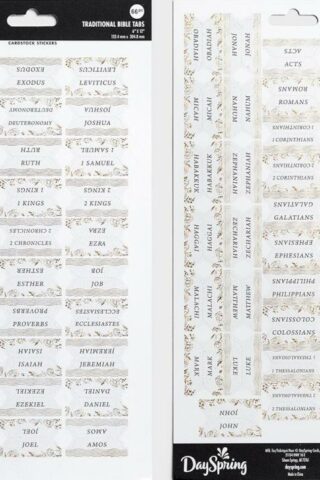Christianity And Pluralism
$8.99
Are the world’s great religions ultimately all the same?
Christianity and Pluralism is a collection of concise yet thoughtful essays by J. I. Packer and Ron Dart, interacting with and responding to the four traditional models used to answer the existence of multiple faiths (exclusive, inclusive, pluralist, and syncretist), but focusing particularly that form of syncretism which claims that all faiths find commonality through their mystical traditions. Written in response to key events in the history of the Anglican church, Packer and Dart’s analysis gives us a perennially relevant model for how the church ought to respond to our own pluralistic culture with integrity and kindness – and how to uphold the distinctiveness of the gospel. Christians directly or indirectly engaging our pluralist world will find their ideas enriched by this short yet powerful book.
in stock within 3-5 days of online purchase
SKU (ISBN): 9781683592877
ISBN10: 1683592875
Ron Dart | J. I. Packer
Binding: Trade Paper
Published: July 2019
Publisher: Lexham Press/Kirkdale Press
Related products
-
Women Of The Bible Speak
$25.99The women of the Bible lived timeless stories–by examining them, we can understand what it means to be a woman of faith.
People unfamiliar with Scripture often assume that women play a small, secondary role in the Bible. But in fact, they were central figures in numerous Biblical tales. It was Queen Esther’s bravery at a vital point in history which saved her entire people. The Bible contains warriors like Jael, judges like Deborah, and prophets like Miriam. The first person to witness Jesus’ resurrection was Mary Magdalene, who promptly became the first Christian evangelist, eager to share the news which would change the world forever.
In The Women of the Bible Speak, Fox News Channel’s Shannon Bream opens up the lives of sixteen of these Biblical women, arranging them into pairs and contrasting their journeys. In pairing their stories, Shannon helps us reflect not only on the meaning of each individual’s life, but on how they relate to each other and to us.
From the shepherdesses of ancient Israel who helped raise the future leaders of the people of God, to the courageous early Christians, the narrative of the Bible offers us many vivid and fascinating female characters. In their lives we can see common struggles to resist bitterness, despair, and pride, and to instead find their true selves in faith, hope, and love. In studying these heroes of the faith, we can find wisdom and warnings for how to better navigate our own faith journeys.
The Women of the Bible Speak outlines the lessons we can take from the valor of Esther, the hope of Hannah, the audacity of Rahab, and the faith of Mary. In broadening each woman’s individual story, Shannon offers us a deeper understanding of each, and wisdom and insights that can transform our own lives today.
Add to cart2 in stock
-
On Earth As In Heaven
$29.99Today’s leading Bible scholar, Anglican bishop, and acclaimed author N. T. Wright returns with a collection of pastoral excerpts, carefully curated from his widely celebrated books, that will inspire those wanting to cultivate a life “on earth as it is in heaven.”
Modern pastors and their flocks have long considered N. T. Wright a role model for being a thoughtful Christian in today’s world. His bestselling books, including Simply Christian, Surprised by Hope, Simply Jesus, and After You Believe, have guided Christians in their belief and practice of the faith. Now, Christians can rely on his wisdom to guide them through each day of their lives with this thoughtful book of daily meditations, featuring short selections from his classic works.
With reflections on themes such as faith, mission, character, and God’s work in the world, these daily meditations will invigorate and uplift Christians in their search to live their faith authentically and biblically in today’s world.
Add to cart2 in stock
-
7 Last Words
$18.99Based on his talks at New York’s St. Patrick’s Cathedral on Good Friday 2015, the New York Times bestselling author and editor at large of America magazine offers a portrait of Jesus, using his last words on the cross to reveal how deeply he understood our predicaments, what it means to be fully human, and why we can turn to Christ completely, in mind, heart, and soul.
Each meditation is dedicated to one of the seven sayings:
*”Father, forgive them, for they do not know what they do.”
*”Today you will be with me in Paradise.”
*”Woman, this is your son” . . . “This is your mother.”?
*”My God, my God, why have you forsaken me?”?
*”I thirst.”?
*”It is finished.”?
*”Father, into your hands I commend my spirit.”With the warmth, wisdom, and grace that infuse his works, Father James Martin explains why Jesus’s crucifixion and death on the cross is an important teaching moment in the Gospels. Jesus’s final statements, words that are deeply cherished by his followers, exemplify the depth of his suffering but also provide a key to his empathy and why we can connect with him so deeply.
Add to cart1 in stock
-
Fire Cat
$3.99Pickles is a young cat with big paws and big plans. But all he can find to do is chase other cats, until he is adopted by the local firehouse.
Knowing that this is his chance to do big things, Pickles works hard to be a good fire cat. He learns to jump on a fire truck. He learns to help put out a fire, and he even helps out in a rescue!
Beginning readers will cheer when Pickle’s dream finally comes true.
Add to cart1 in stock

















Reviews
There are no reviews yet.